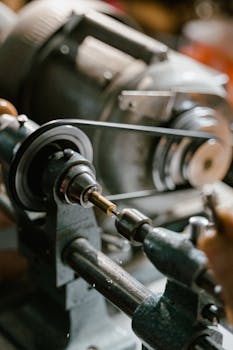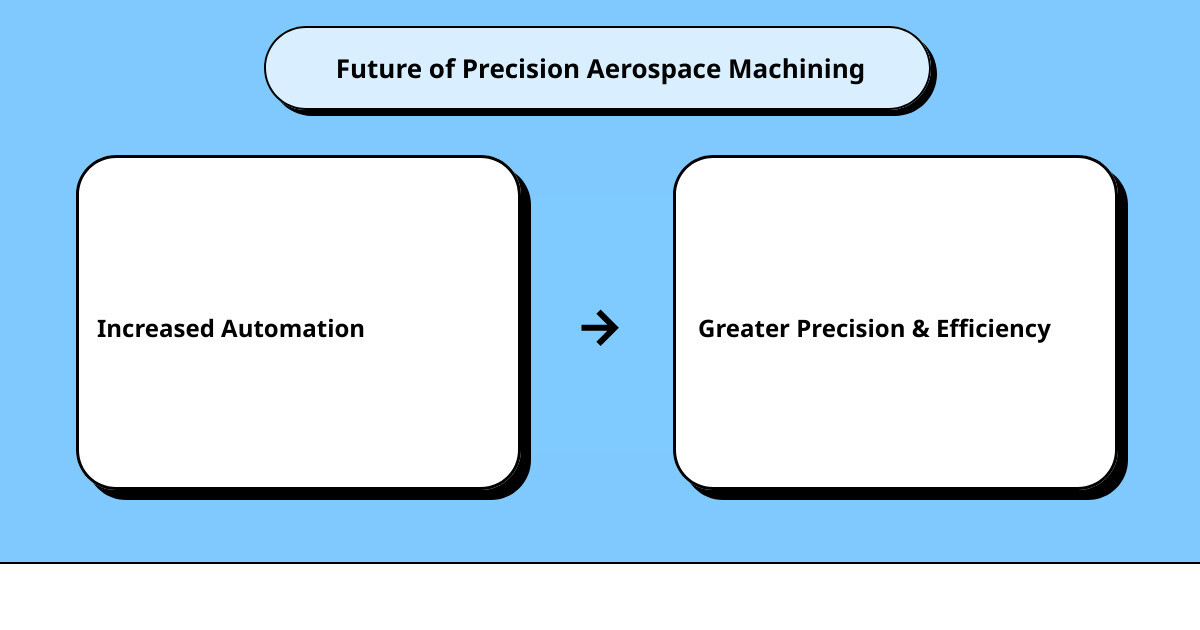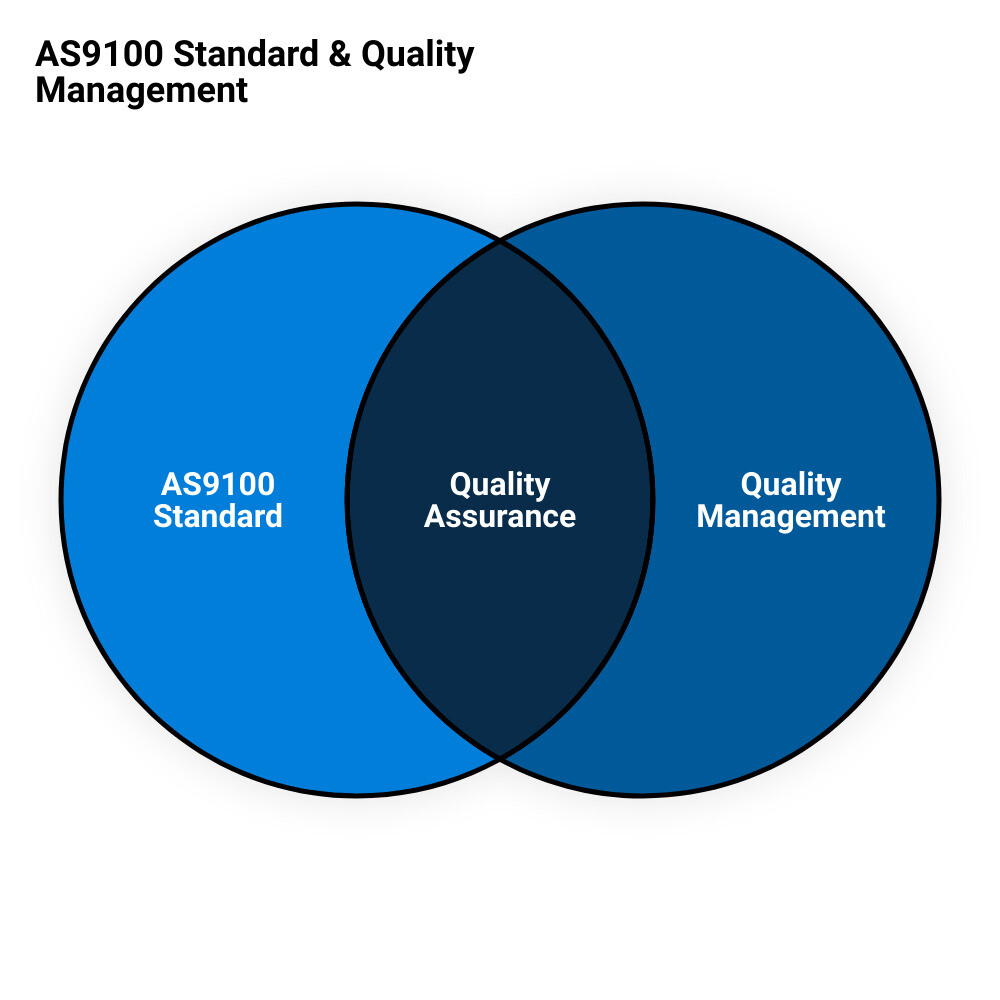Precision Aerospace Machining: a term that may sound complex, but is the backbone of the aerospace industry and a cornerstone of modern technology. It embodies the meticulous process of creating intricate parts and components for aircraft and spacecraft using advanced machinery and techniques. The demand for precision, accuracy, and reliability in the aerospace industry is uncompromising, and this is where precision aerospace machining comes into play.
This process involves the creation of specialized high-precision components vital to the functionality, safety, and reliability of commercial aircraft, eVTOL aircraft, and spacecraft. Aerospace manufacturers must adhere to incredibly high standards in their manufacturing methods and assembly techniques, strictly following international quality standards. The components and assemblies are manufactured within micron tolerances by numerically controlled machines, requiring sophisticated automation for repeatability and standardized work practices to ensure product consistency.
The term ‘precision’ in aerospace machining goes beyond just the manufacturing process. It extends to the rigorous quality control checks carried out throughout the entire production process. All geometries are verified by coordinated measuring machines for precision verification and documentation of manufactured parts and assemblies, ensuring components meet the strict functional and regulatory requirements of the aerospace industry according to AS9100 standards.
One of the key players in the realm of precision aerospace machining is TMC Technologies. Specializing in a range of services including CNC milling, CNC turning, and other secondary operations, TMC Technologies has demonstrated its commitment to delivering top-notch precision machining services with meticulous attention to detail and adherence to quality.
This article takes you on a deep dive into the world of precision aerospace machining, exploring its significance in the aerospace industry, the role of TMC Technologies, and the future of this critical field. So, if you’re an industry professional seeking a reliable supplier of CNC lathe parts or simply interested in understanding the intricacies of aerospace manufacturing, read on!
Understanding Precision Machining Process
In a world where precision translates to efficiency and excellence, the precision machining process is a cornerstone of modern manufacturing, especially in the aerospace industry. As a business seeking exceptional CNC lathe parts, it is crucial to comprehend this process, its relevance, and how it influences the quality of your machinery.
The Role of Computer Numerical Control (CNC) in Precision Machining
The cornerstone of precision machining is Computer Numerical Control (CNC), an advanced system that automates the manufacturing process. CNC machines follow instructions from sophisticated software to shape raw materials into complex parts with exact dimensions. This technology allows for high accuracy, repeatability, and quality control in creating parts.
With CNC precision machining, businesses can produce parts with extremely tight tolerances and superior surface finishes, surpassing the capabilities of manual processes. This technology minimizes waste by reducing scrap from incorrect dimensions or damaged surfaces caused by manual machining, ensuring efficient use of resources. Furthermore, CNC precision machining significantly reduces the possibility of human error, enhancing the overall quality control.
Moreover, CNC machines are not limited to a single function. They can perform multiple operations such as milling, turning, drilling, grinding, and routing, making them invaluable assets in the manufacturing industry.
The Importance of Precision Machine Technology
Equally significant in the precision machining process is the use of precision machine technology. This involves the use of specialized equipment such as lathes, drill presses, and milling machines to manufacture parts with precise dimensions. Such tools are essential in industries that require high precision parts such as the aerospace, medical, and electronics industries.
In precision machine technology, understanding part dimensioning, tool geometry, speed and feed calculations, and quality control is crucial. These factors ensure that parts are manufactured to exact specifications, minimizing the risk of errors and ensuring the longevity and reliability of your industrial machinery.
In conclusion, the precision machining process, underpinned by CNC and precision machine technology, is the engine that drives the manufacturing of high-precision parts. By understanding this process, businesses can make informed decisions when selecting suppliers, ensuring the quality and reliability of their machinery. The next section will delve deeper into the significance of precision machining in the aerospace industry, providing further insights into this vital process.
The Significance of Precision Machining in Aerospace Industry
Manufacturing in the aerospace sector is a high-stakes game where even the tiniest error can lead to catastrophic results. Thus, the importance of precision machining, with its ability to produce complex components to exact specifications, cannot be overstated.
The Use of Precision Machining in Aerospace Components Manufacturing
In the world of aerospace manufacturing, precision is not just a goal, but a necessity. This industry is known for its highly complex components, many of which have intricate geometries and are critical for the functionality, safety, and reliability required from commercial aircraft, eVTOL aircraft, or spacecraft.
Precision machining in aerospace involves shaping large pieces of material into more precise parts using computer numerical control (CNC) equipment. This process, which includes cutting, milling, turning, and electrical discharge machining, allows manufacturers to meet the exact specifications required in aerospace applications.
Moreover, precision machining leverages advanced technologies like multi-axis CNC machines, which offer the functionality and capabilities required to machine aerospace parts with innovative design trends. These machines can perform simultaneous translation and rotational movements, allowing for precise machining of intricate parts and complex tool designs.
The Impact of Precision Machining on Aerospace Industry
Precision machining has revolutionized the aerospace industry. With the advent of CNC machining, aerospace manufacturers can now create components that were previously impossible or extremely difficult to produce. This has led to significant advancements in aerospace design and functionality.
Moreover, precision machining has greatly improved the efficiency of aerospace manufacturing. The use of computer-aided design (CAD) and computer-aided manufacturing (CAM) software packages, for instance, has streamlined the production process. CAD is used for designing products, while CAM is the programming tool for CNCs that takes the CAD model and generates the G-code used in CNC machining, thus creating a more efficient production process.
Furthermore, precision machining has helped the aerospace industry meet the strict international quality standards, like the AS9100, that govern it. All geometries must be verified by coordinated measuring machines for precision verification and documentation of manufactured parts and assemblies. This ensures that the components meet the strict functional and regulatory requirements of the aerospace industry.
In conclusion, precision machining has become an essential tool in the aerospace industry, enabling the production of complex, high-precision parts with increased efficiency and adherence to strict quality standards. As aerospace technology continues to advance, the role of precision machining in this industry will only become more significant.

The Role of TMC Technologies in Precision Aerospace Machining
Diving into the world of Aerospace Machining, we find TMC Technologies at the forefront. With over three decades of experience, TMC Technologies has carved a niche for itself in the realm of precision machining, wielding cutting-edge technology to deliver unparalleled precision and consistency in aerospace components manufacturing.
TMC Technologies: A Leader in CNC Lathe Parts Manufacturing
With a reputation built on years of delivering high-quality services, TMC Technologies stands as a leader in CNC lathe parts manufacturing. TMC’s team of highly skilled engineers and technicians bring an unmatched level of expertise to the table, utilizing the latest machining technologies such as 3D modeling, CNC turning, and machining to guarantee accuracy and superior workmanship.
At TMC Technologies, the team has a deep understanding of the aerospace industry’s strict protocols and regulations, which is crucial when manufacturing CNC lathe parts. Their dedication to maintaining the highest standards of quality and precision is evident in the rigorous quality control checks that each service undergoes throughout the entire production process.
The Unique Selling Proposition of TMC Technologies
What sets TMC Technologies apart from the rest? Their approach to precision machining services encompasses more than just high-quality manufacturing. They offer an extensive range of services that include grinding, heat treating, light fabrication/assembly, and various other secondary operations.
TMC Technologies boasts a state-of-the-art automated tools and technology, allowing them to efficiently and cost-effectively manufacture a variety of materials, including aluminum alloys, brass, titanium, stainless steel, and plastics.
Moreover, TMC Technologies understands the urgency that often accompanies the need for precision parts. As such, they strive to deliver short lead times without compromising the high-quality workmanship that they are known for.
In addition to their commitment to delivering top-notch precision machining services, TMC Technologies also places a high value on customer satisfaction. Their unwavering attention to detail and commitment to quality ensures that each client can rely on their machining needs being met to the highest standards.
In summary, TMC Technologies’ unique selling proposition lies in their combination of extensive industry experience, cutting-edge technology, rigorous quality control, and a commitment to customer satisfaction. These factors all contribute to making them a trusted partner in the realm of precision aerospace machining.

The Future of Precision Aerospace Machining
As we gaze into the horizon of precision aerospace machining, two pivotal factors stand out: the role of automation and the importance of skilled professionals. Both of these elements will play an increasingly vital role in the advancement of the industry, offering opportunities for more efficient and accurate production processes.
The Role of Automation in Precision Aerospace Machining
The aerospace industry has always been a pioneer in the adoption of cutting-edge technologies, and this trend is set to continue with the increasing use of automation. Automated machining processes offer unmatched precision, reliability, and speed, which are critical requirements in the aerospace sector.
Automation in precision aerospace machining isn’t a futuristic concept; it’s happening now. Automated cells composed of robotics, measurement, and vision systems are already crucial to the productivity and quality of an aerospace manufacturer. Integrated error-proofing techniques such as vision systems or laser profilers ensure components meet the design standard efficiently. Furthermore, the use of Coordinated Measuring Machines (CMM) and optical profilometers with tight measuring tolerances, often to 0.1µm resolution, are necessary to verify dimensional tolerances within aerospace machining and manufacturing.
The Importance of Skilled Professionals in Precision Aerospace Machining
While automation and advanced machinery are critical, the human element cannot be overlooked. Skilled professionals remain at the heart of the precision aerospace machining industry. Leading-edge design requires skilled and innovative engineers to execute. Modern software packages such as Computer-aided Design (CAD) and Computer-aided Manufacturing (CAM) can’t replace the need for skilled manufacturing engineers, NC programmers, or machinists. These software packages are simply tools that augment the value of the most skilled manufacturing professionals through advanced productivity tools.
Moreover, these professionals aren’t just operators; they’re problem solvers and innovators. They navigate the complexity of modern machining tools, automation, and strict regulatory guidelines of the International Aerospace Quality Group. At the forefront of these professionals, you’ll find the team at TMC Technologies, who are dedicated to producing high-quality CNC machined parts with quick turnaround times.
As we look to the future, the blend of automation and skilled professionals will continue to drive precision aerospace machining to new heights. With companies like TMC Technologies leading the charge, the future of precision aerospace machining is indeed promising.

The Importance of Quality Standards in Precision Aerospace Machining
When it comes to the aerospace industry, there’s no room for compromise on quality. The stakes are simply too high. In this context, precision aerospace machining is bound by rigorous international quality standards that ensure the safety, reliability, and functionality of every aircraft component. Understanding these quality standards, particularly the AS9100 standard, and the role of quality management in precision aerospace machining, is crucial for any manufacturing company looking to excel in this sector.
Understanding the AS9100 Standard in Aerospace Industry
The AS9100 standard, introduced by the International Aerospace Quality Group (IAQG) in 1999, is the cornerstone of quality management in the aerospace industry. This globally recognized standard, based on the ISO 9001, is designed specifically for the unique needs of aviation, defense, and spaceflight organizations. It encompasses a range of specific criteria that ensure international consistency and compliance with the demanding regulatory, safety, and reliability requirements of the commercial aerospace sector.
The AS9100 standard has undergone several revisions over time, reflecting the evolving needs of the industry. The latest version, AS9100 Revision D, includes the full text of ISO 9001:2015, with enhancements in product safety standards, risk clauses, and counterfeit parts prevention. Compliance with the AS9100 standard is not optional for aerospace manufacturers—it’s a prerequisite to doing business in the sector.
The Role of Quality Management in Precision Aerospace Machining
Quality management in precision aerospace machining isn’t just about adhering to standards. It’s about integrating quality into every aspect of the manufacturing process, ensuring that each part produced meets the exacting specifications required for safety and performance.
In practice, this involves using advanced tools and techniques, such as Computer-Aided Design (CAD) and Computer-Aided Manufacturing (CAM) software packages, to optimize the design and manufacturing process. It also involves the use of state-of-the-art automation systems, including robotics and vision systems, to enhance productivity and ensure that every component meets the required design standard.
Moreover, stringent quality checks are conducted throughout the production process using high-precision measuring tools like Coordinated Measuring Machines (CMM) and optical profilometers. These checks, often conducted to resolutions as fine as 0.1µm, verify the dimensional tolerances of each part, ensuring that they conform to the stringent requirements of aerospace machining and manufacturing.
In conclusion, quality management is a vital element of precision aerospace machining. It’s a commitment to excellence that ensures the safety and performance of every component produced, from the smallest screw to the largest turbine blade. As we navigate the future of aerospace manufacturing, companies like TMC Technologies are leading the way, offering precision machining services that meet and exceed the highest international quality standards.
Conclusion: The Future of Precision Aerospace Machining with TMC Technologies
In the ever-evolving landscape of aerospace manufacturing, precision is the key to unlocking the future. As we continue to push the boundaries of what’s possible, it’s companies like TMC Technologies that are leading the charge, paving the way for advancements in precision aerospace machining.
With over 30 years of experience in precision machining services, TMC Technologies not only offers a wealth of expertise but also a commitment to delivering high-quality, precision-engineered products. Utilizing state-of-the-art automated tools and technology, TMC Technologies can work with a variety of materials— from aluminum alloys to stainless steel— ensuring both efficiency and cost-effectiveness in the machining process.
The future of precision aerospace machining also lies in the continual adoption and integration of advanced automation techniques. TMC Technologies understands the importance of this, employing sophisticated automation within their manufacturing processes. This includes the use of robotics, measurement, and vision systems, crucial to maintaining productivity and ensuring the quality of their output.
However, the future isn’t just about technology. It’s also about people. TMC Technologies recognizes the importance of skilled professionals in the field of precision aerospace machining. Their team of highly trained engineers and technicians are dedicated to maintaining rigorous quality control checks throughout the production process, ensuring each component meets the highest standards of quality and precision.
In a world where standards matter, TMC Technologies also understands the importance of adhering to strict international quality standards like the AS9100. This commitment to quality management ensures that every product produced meets the rigorous demands of the aerospace industry.
In conclusion, TMC Technologies is not just a part of the future of precision aerospace machining— they are actively shaping it, offering unrivaled expertise, advanced technology, and a deep commitment to quality. As we look towards the future, it’s clear that precision aerospace machining will continue to be a fundamental pillar of the aerospace industry, and companies like TMC Technologies will continue to lead the way.